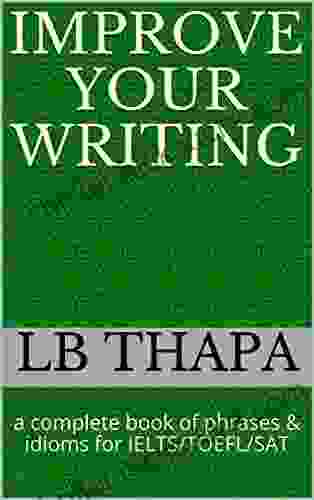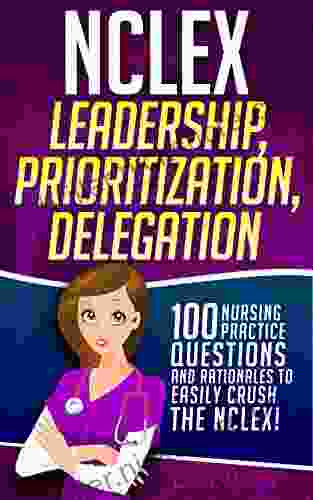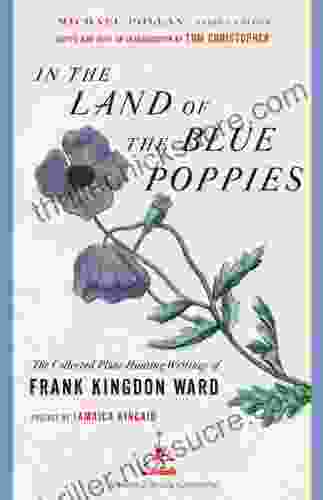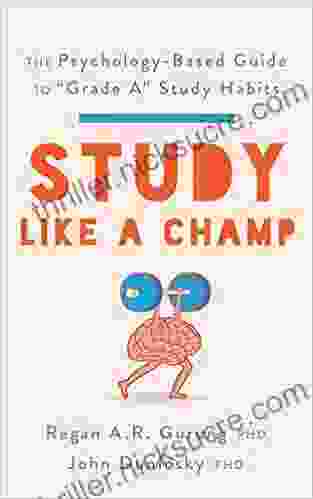The Psychology-Based Guide to Grade-Boosting Study Habits

Are you struggling to keep up with your studies? Do you find yourself cramming at the last minute, only to forget everything you've learned when the exam comes around? If so, you're not alone. Millions of students around the world struggle with ineffective study habits that hinder their academic success.
5 out of 5
| Language | : | English |
| File size | : | 883 KB |
| Text-to-Speech | : | Enabled |
| Screen Reader | : | Supported |
| Print length | : | 736 pages |
But what if there was a better way to study? A way that could help you learn more effectively, remember more information, and get better grades?
There is. And it's based on the science of psychology.
In this article, we'll explore the psychology behind effective studying. We'll discuss the key principles of learning and memory, and we'll provide you with practical tips and strategies that you can use to improve your study habits and boost your grades.
The Psychology of Learning and Memory
Before we dive into specific study habits, it's important to understand the basics of how we learn and remember information.
Learning is the process of acquiring new knowledge or skills. It involves the formation of new neural connections in the brain. Memory is the ability to store and retrieve information. It's a complex process that involves multiple brain regions.
There are two main types of memory: short-term memory and long-term memory.
- Short-term memory stores information for a brief period of time, usually only a few seconds or minutes. It's like a temporary holding tank for information that you're currently using.
- Long-term memory stores information for a much longer period of time, sometimes even indefinitely. It's like a permanent storage facility for information that you've learned and want to remember.
In order to move information from short-term memory to long-term memory, you need to engage in a process called encoding. Encoding is the process of converting information into a form that your brain can store and retrieve.
There are different types of encoding, including:
- Acoustic encoding: encoding information based on how it sounds
- Visual encoding: encoding information based on how it looks
- Semantic encoding: encoding information based on its meaning
The best way to encode information is to use multiple encoding techniques. For example, you could read a passage of text out loud (acoustic encoding),highlight the important points (visual encoding),and summarize the main ideas in your own words (semantic encoding).
Once information is encoded, it's stored in long-term memory. However, it's not always easy to retrieve information from long-term memory. That's where retrieval comes in.
Retrieval is the process of accessing information from long-term memory. It's like searching for a file on your computer. The more deeply encoded the information is, the easier it will be to retrieve.
There are different techniques you can use to improve your retrieval skills, such as:
- Spaced repetition: reviewing information at increasing intervals
- Elaboration: connecting new information to information you already know
- Self-testing: quizzing yourself on the information
By understanding the psychology of learning and memory, you can develop study habits that will help you learn more effectively and remember more information.
Effective Study Habits
Now that you understand the basics of learning and memory, let's discuss some effective study habits that you can start using today.
1. Set Specific Goals
Before you start studying, take some time to set specific goals for what you want to achieve. What do you want to learn? What concepts do you need to master? Once you know what you want to achieve, you can develop a plan to reach your goals.
2. Create a Study Schedule
Once you have set your goals, create a study schedule that will help you achieve them. Be realistic about how much time you can commit to studying each day. It's better to study for shorter periods of time on a regular basis than to cram at the last minute.
3. Choose a Good Study Environment
The environment in which you study can have a big impact on your learning. Choose a place where you can focus and minimize distractions. If possible, study in a quiet place with plenty of natural light.
4. Use Active Learning Techniques
Active learning techniques require you to do more than just passively read and listen. They involve actively engaging with the material and applying it to your own life. Some examples of active learning techniques include:
- Summarizing
- Outlining
- Creating concept maps
- Solving problems
- Participating in discussions
5. Take Breaks
It's important to take breaks while you're studying. Getting up and moving around, or ng something unrelated to studying, can help to improve your focus and concentration.
6. Get Enough Sleep
Sleep is essential for learning and memory. When you sleep, your brain consolidates the information you've learned and stores it in long-term memory. Aim for 7-8 hours of sleep each night.
7. Eat Healthy Foods
Eating healthy foods can help to improve your overall health and well-being, which can in turn improve your learning and memory. Some foods that are particularly good for the brain include:
- Fruits
- Vegetables
- Whole grains
- Lean protein
- Omega-3 fatty acids
8. Avoid Procrastination
Procrastination is one of the biggest enemies of effective studying. When you procrastinate, you put off studying until the last minute. This can lead to stress, anxiety, and poor performance.
There are many different ways to avoid procrastination. Some tips include:
- Breaking down large tasks into smaller, more manageable tasks
- Setting deadlines for yourself
- Rewarding yourself for completing tasks
- Avoiding distractions
9. Seek Help When Needed
If you're struggling with your studies, don't be afraid to seek help. Talk to your teacher, a tutor, or a counselor. They can help you identify the problems you're facing and develop strategies to overcome them.
By following these tips, you can improve your study habits and boost your grades. Remember, learning is a process that takes time and effort. But with the right mindset and strategies, you can achieve your academic goals and succeed in school.
5 out of 5
| Language | : | English |
| File size | : | 883 KB |
| Text-to-Speech | : | Enabled |
| Screen Reader | : | Supported |
| Print length | : | 736 pages |
Do you want to contribute by writing guest posts on this blog?
Please contact us and send us a resume of previous articles that you have written.
 Fiction
Fiction Non Fiction
Non Fiction Romance
Romance Mystery
Mystery Thriller
Thriller SciFi
SciFi Fantasy
Fantasy Horror
Horror Biography
Biography Selfhelp
Selfhelp Business
Business History
History Classics
Classics Poetry
Poetry Childrens
Childrens Young Adult
Young Adult Educational
Educational Cooking
Cooking Travel
Travel Lifestyle
Lifestyle Spirituality
Spirituality Health
Health Fitness
Fitness Technology
Technology Science
Science Arts
Arts Crafts
Crafts DIY
DIY Gardening
Gardening Petcare
Petcare Mark J Ferrari
Mark J Ferrari Judith A Owens
Judith A Owens Marguerite Henry
Marguerite Henry Scott Hawthorn
Scott Hawthorn Martin Odersky
Martin Odersky Inger Mewburn
Inger Mewburn William Souder
William Souder David Levithan
David Levithan Soong Chan Rah
Soong Chan Rah Steven Verrier
Steven Verrier Seb Falk
Seb Falk David M Ewalt
David M Ewalt Jacques Vallee
Jacques Vallee Brett Stewart
Brett Stewart Sriman Sharma
Sriman Sharma J F James
J F James Dusan Petkovic
Dusan Petkovic Milne Cc Pocock
Milne Cc Pocock Jay Asher
Jay Asher Kara Forney
Kara Forney Linda Carter
Linda Carter Megan Whalen Turner
Megan Whalen Turner Peggy Kaye
Peggy Kaye Lucas Chancel
Lucas Chancel Ian Tuhovsky
Ian Tuhovsky Kevin Marx
Kevin Marx Sam Sorbo
Sam Sorbo Brian Noyes
Brian Noyes John Mclachlan
John Mclachlan George Olsen
George Olsen St Teresa Of Avila
St Teresa Of Avila Edith Hall
Edith Hall Megan Kelley Hall
Megan Kelley Hall Howtodressage
Howtodressage J Wayne Fears
J Wayne Fears Thomas A Jacobs
Thomas A Jacobs Patty Wipfler
Patty Wipfler Jp Kriya
Jp Kriya Neil S Jacobson
Neil S Jacobson Steve Williams
Steve Williams Thomas Malory
Thomas Malory Lisa Leake
Lisa Leake James Zug
James Zug Judy H Wright
Judy H Wright Nick Heil
Nick Heil Mark Seemann
Mark Seemann Joel Ingersoll
Joel Ingersoll Christopher Ketcham
Christopher Ketcham Diane Ravitch
Diane Ravitch Eric Michael
Eric Michael Robin Dunbar
Robin Dunbar Joan Nathan
Joan Nathan Damien Cox
Damien Cox Matt Schifferle
Matt Schifferle Mark Howard
Mark Howard F R Lifestyle
F R Lifestyle Claudia Gray
Claudia Gray Miguel Crespo
Miguel Crespo Matt Doeden
Matt Doeden Eric R Dodge
Eric R Dodge Lisa Druxman
Lisa Druxman Chukwuma Eleodimuo
Chukwuma Eleodimuo Bret Stetka
Bret Stetka James Kaiser
James Kaiser Cal Pater
Cal Pater Jackie Freeman
Jackie Freeman John A Fortunato
John A Fortunato Dan Washburn
Dan Washburn Jacqueline Houtman
Jacqueline Houtman Elwyn Hartley Edwards
Elwyn Hartley Edwards Joseph Burbridge
Joseph Burbridge Oded Galor
Oded Galor Maria Sharapova
Maria Sharapova Guy P Harrison
Guy P Harrison Courtney Macavinta
Courtney Macavinta Penny Alexander
Penny Alexander John Monaghan
John Monaghan Brian Kilmeade
Brian Kilmeade Khalid Khashoggi
Khalid Khashoggi Colleen Craig
Colleen Craig Karl F Kuhn
Karl F Kuhn James Floyd Kelly
James Floyd Kelly Sean Michael Wilson
Sean Michael Wilson Estelle Dautry
Estelle Dautry Christine Brennan
Christine Brennan Lenore Skenazy
Lenore Skenazy John Connelly
John Connelly Dr Faith G Harper
Dr Faith G Harper Brett Cohen
Brett Cohen Jonathan Grix
Jonathan Grix Mike Eastman
Mike Eastman Gene Kritsky
Gene Kritsky John M Taylor
John M Taylor Michael A Tompkins
Michael A Tompkins Steve Schwartz
Steve Schwartz Nathan Halberstadt
Nathan Halberstadt Lana Peek
Lana Peek Tadashi Yoshimura
Tadashi Yoshimura Gerson S Sher
Gerson S Sher Kaylene Yoder
Kaylene Yoder Bryan Berard
Bryan Berard Dave Ramsey
Dave Ramsey Htebooks
Htebooks Alan D Moore
Alan D Moore Samuel Arbesman
Samuel Arbesman Dan Fullerton
Dan Fullerton Santari Green
Santari Green Nate Allen
Nate Allen Debra Fine
Debra Fine Vicki Franz
Vicki Franz Carlo Zen
Carlo Zen Leigh Pearson
Leigh Pearson Paula Brackston
Paula Brackston Murray Shukyn
Murray Shukyn Kyle Rohrig
Kyle Rohrig Roshani Chokshi
Roshani Chokshi Rory D Nelson
Rory D Nelson Nachole Johnson
Nachole Johnson Kicki Hansard
Kicki Hansard E L Konigsburg
E L Konigsburg Marc Bona
Marc Bona Brittany Cavallaro
Brittany Cavallaro Melissa Trevathan
Melissa Trevathan Alex Horne
Alex Horne Caitlyn Dare
Caitlyn Dare Sujit Sivasundaram
Sujit Sivasundaram Charles Wilson
Charles Wilson Pastor Ahyh
Pastor Ahyh Brogan Steele
Brogan Steele Krishna Godhania
Krishna Godhania Keith Ryan Cartwright
Keith Ryan Cartwright Gabriel F Federico
Gabriel F Federico Gustav Meyrink
Gustav Meyrink Grace Mariana Rector
Grace Mariana Rector Nora Roberts
Nora Roberts Mitt Romney
Mitt Romney Harry Vardon
Harry Vardon Masaaki Kijima
Masaaki Kijima Melanie Challenger
Melanie Challenger Jessica Minahan
Jessica Minahan Luis Angel Echeverria
Luis Angel Echeverria Jeremy J Baumberg
Jeremy J Baumberg Joyce Bas
Joyce Bas Joanne M Flood
Joanne M Flood Julie Cangialosi
Julie Cangialosi Lisa Scottoline
Lisa Scottoline Jason Brick
Jason Brick Cal Ripken
Cal Ripken Michael Ruhlman
Michael Ruhlman Brian R King
Brian R King Stephanie Sarkis
Stephanie Sarkis Jonti Marks
Jonti Marks David Schoem
David Schoem Xavier Wells
Xavier Wells Celina Grace
Celina Grace Jane Albert
Jane Albert Frederick Grinnell
Frederick Grinnell Shannon Warden
Shannon Warden Sara Elliott Price
Sara Elliott Price Dava Sobel
Dava Sobel Ron Lieber
Ron Lieber Einat L K
Einat L K Lucia Guglielminetti
Lucia Guglielminetti John D Couch
John D Couch Emily Lauren Dick
Emily Lauren Dick Patrick Carnes
Patrick Carnes Timothy A Sisemore
Timothy A Sisemore John Major Jenkins
John Major Jenkins Jaime Flowers
Jaime Flowers Bruce Macdonald
Bruce Macdonald Charles Todd
Charles Todd Derek Blasberg
Derek Blasberg Ann Imig
Ann Imig David Barrie
David Barrie William Shakespeare
William Shakespeare Juliet Miller
Juliet Miller Heather Rose
Heather Rose Joseph Ewing
Joseph Ewing Jameswesley Rawles
Jameswesley Rawles Dr Lena Edwards
Dr Lena Edwards David Jason
David Jason Avery Faigenbaum
Avery Faigenbaum Zigzag English
Zigzag English Melinda Tankard Reist
Melinda Tankard Reist Paul Simpson
Paul Simpson Larry A Yff
Larry A Yff Hal R Varian
Hal R Varian Lee Alan Dugatkin
Lee Alan Dugatkin Brion Toss
Brion Toss Bruce A Fenderson
Bruce A Fenderson Ilchi Lee
Ilchi Lee Cecelia Ahern
Cecelia Ahern Brian Reddington
Brian Reddington Wil Fleming
Wil Fleming Brian Herne
Brian Herne Geoffrey Simpson
Geoffrey Simpson Bobbi Conner
Bobbi Conner William Albert Robinson
William Albert Robinson Inge Bell
Inge Bell Rick Steves
Rick Steves Emil Frlez
Emil Frlez Esther Hicks
Esther Hicks Matt Wastradowski
Matt Wastradowski Clayton King
Clayton King G E R Lloyd
G E R Lloyd Mitchel P Roth
Mitchel P Roth Mike Adams
Mike Adams Joanna Faber
Joanna Faber Kalynn Bayron
Kalynn Bayron Loyd Ellis
Loyd Ellis Bernard Darwin
Bernard Darwin Dave Cutcher
Dave Cutcher Loan Le
Loan Le Gerald R Allen
Gerald R Allen Daniel Bergner
Daniel Bergner Patricia Wooster
Patricia Wooster Douglas Wood
Douglas Wood Stephen Hawking
Stephen Hawking Rob Collins
Rob Collins Michael Sullivan Iii
Michael Sullivan Iii Nicole Morales Lm Cpm
Nicole Morales Lm Cpm D S Malik
D S Malik Colleen Doyle Bryant
Colleen Doyle Bryant Michel Odent
Michel Odent Phil Williams
Phil Williams Kerry Mcdonald
Kerry Mcdonald Pat Manocchia
Pat Manocchia J R Harris
J R Harris Steven Hugg
Steven Hugg Sara Gaviria
Sara Gaviria Lee Mcintyre
Lee Mcintyre Diana J Mason
Diana J Mason F Brent Neal
F Brent Neal Chuck Callaway
Chuck Callaway Daniel Bagur
Daniel Bagur Steven Emanuel
Steven Emanuel Denise Long
Denise Long Michael Mason
Michael Mason Thao Te
Thao Te T J Tomasi
T J Tomasi James Dean
James Dean John Mcenroe
John Mcenroe John Jeffries Martin
John Jeffries Martin Paul Farmer
Paul Farmer Kelle James
Kelle James Patrick Garbin
Patrick Garbin Cpt Exam Prep Team
Cpt Exam Prep Team Kathleen Cushman
Kathleen Cushman Florence Weiser
Florence Weiser Kusha Karvandi
Kusha Karvandi Laura A Jana
Laura A Jana Jonathan H Turner
Jonathan H Turner Chase Hassen
Chase Hassen Joanna Philbin
Joanna Philbin Richard Bass
Richard Bass Tyler Hamilton
Tyler Hamilton Rob Coppolillo
Rob Coppolillo Stuart Woods
Stuart Woods Ted Franklin Belue
Ted Franklin Belue Richard Hingley
Richard Hingley Matt Morton
Matt Morton Samuel Greenberg
Samuel Greenberg Renee Jain
Renee Jain Carol Walters
Carol Walters Clyde Soles
Clyde Soles Catherine Shainberg
Catherine Shainberg Jacob Boehme
Jacob Boehme Don L Gates
Don L Gates Colleen Houck
Colleen Houck Tobe Melora Correal
Tobe Melora Correal Natalia Ilyin
Natalia Ilyin Leslie Valiant
Leslie Valiant Rich Cohen
Rich Cohen Lindsey Schlessinger
Lindsey Schlessinger Colette Harris
Colette Harris Don Brown
Don Brown David Hoffman
David Hoffman Steve Oakes
Steve Oakes Victor A Bloomfield
Victor A Bloomfield Cecilia Twinch
Cecilia Twinch Rosalyn Sheehy
Rosalyn Sheehy Vincent W Davis
Vincent W Davis Brian Everitt
Brian Everitt Nehemia Gordon
Nehemia Gordon Sarah Lamb
Sarah Lamb Doug Peacock
Doug Peacock Kira Breed Wrisley
Kira Breed Wrisley Jeremy Bradstreet
Jeremy Bradstreet Lewis Black
Lewis Black Luis Preto
Luis Preto Richard Blais
Richard Blais William Trubridge
William Trubridge Jackson T Markbrown
Jackson T Markbrown James D Tabor
James D Tabor John Fraser Hart
John Fraser Hart Kazumi Tabata
Kazumi Tabata Peggy Tharpe
Peggy Tharpe Ji Kim
Ji Kim J R Mathews
J R Mathews Claudia M Gold
Claudia M Gold Peter Zuckerman
Peter Zuckerman Cheryl Diamond
Cheryl Diamond Nadim Saad
Nadim Saad Martin Wells
Martin Wells Kindle Edition
Kindle Edition Mark William
Mark William John Cooper
John Cooper Matthew Desmond
Matthew Desmond Jez Cajiao
Jez Cajiao Michael Masters
Michael Masters Kevin Alexander
Kevin Alexander Keith Foskett
Keith Foskett Natalia Rojas
Natalia Rojas Kent Hoffman
Kent Hoffman Jules Wake
Jules Wake Breanna Hayse
Breanna Hayse Jean Nayar
Jean Nayar Elsevier
Elsevier Susan F Paterno
Susan F Paterno Kenneth Paul Rosenberg
Kenneth Paul Rosenberg Piero Ferrucci
Piero Ferrucci Eric C Lindstrom
Eric C Lindstrom Sonja Schwartzbach
Sonja Schwartzbach Pittacus Lore
Pittacus Lore Grete Waitz
Grete Waitz David Sinclair
David Sinclair Jeanne Ellis Ormrod
Jeanne Ellis Ormrod Hiram Bingham
Hiram Bingham Matt Parker
Matt Parker Mark Johnston
Mark Johnston Carol Kaesuk Yoon
Carol Kaesuk Yoon David Cannon
David Cannon Nibedit Dey
Nibedit Dey Jennifer Block
Jennifer Block Scott Reed
Scott Reed David Barrett
David Barrett Caitlin Flanagan
Caitlin Flanagan Stephanie Perkins
Stephanie Perkins Michael Sean Comerford
Michael Sean Comerford Ivan Savov
Ivan Savov Molly Caldwell Crosby
Molly Caldwell Crosby Emilee Day
Emilee Day Brooks Blevins
Brooks Blevins Trish Kuffner
Trish Kuffner Janice L Raymond
Janice L Raymond John Moren
John Moren Jd Tanner
Jd Tanner Jeannette De Wyze
Jeannette De Wyze Peter Allison
Peter Allison Mike Weatherstone
Mike Weatherstone Brian W Kernighan
Brian W Kernighan Jodi Aman
Jodi Aman Toni Weschler
Toni Weschler Carol Newell
Carol Newell John Bradshaw
John Bradshaw John Wesson
John Wesson Tim Dunn
Tim Dunn Mary Heffernan
Mary Heffernan Steve Guest
Steve Guest Eduardo Montano
Eduardo Montano Heyward Coleman
Heyward Coleman Michael Omi
Michael Omi Daniel Vaughan
Daniel Vaughan Martin Sternstein
Martin Sternstein Mariana Monteiro
Mariana Monteiro 1st Ed 2018 Edition Kindle Edition
1st Ed 2018 Edition Kindle Edition Paul Carus
Paul Carus Arthur Scott Bailey
Arthur Scott Bailey Rachel Mcgrath
Rachel Mcgrath Adam Night
Adam Night Scott Haines
Scott Haines Ursula Hackett
Ursula Hackett Meg Cabot
Meg Cabot Christopher Clarey
Christopher Clarey Ned Mcintosh
Ned Mcintosh Worth Books
Worth Books Joyce Harper
Joyce Harper Wilborn Hampton
Wilborn Hampton Phyllis Books
Phyllis Books Joe Grant
Joe Grant Frederick L Coolidge
Frederick L Coolidge Guido W Imbens
Guido W Imbens Derick Lugo
Derick Lugo Scott Jurek
Scott Jurek Paula Span
Paula Span Eze Ugbor
Eze Ugbor Warren Hansen
Warren Hansen Jemar Tisby
Jemar Tisby Lukas M Verburgt
Lukas M Verburgt Jp Lepeley
Jp Lepeley Cassandra Overby
Cassandra Overby Dr Nanhee Byrnes
Dr Nanhee Byrnes Shayla Black
Shayla Black Michael O Emerson
Michael O Emerson Tom Cunliffe
Tom Cunliffe Maurice Herzog
Maurice Herzog Dr Monique Thompson Dha Lpc
Dr Monique Thompson Dha Lpc David Hatcher Childress
David Hatcher Childress Kathleen Bartholomew
Kathleen Bartholomew Scott Zimmerman
Scott Zimmerman Mary Strand
Mary Strand J C Cervantes
J C Cervantes Robert Wright
Robert Wright E G Richards
E G Richards Jeanne Flavin
Jeanne Flavin Jimmie Holland
Jimmie Holland Rob Vollman
Rob Vollman Martin A Lee
Martin A Lee Karen E Mcconnell
Karen E Mcconnell Porter Shimer
Porter Shimer Megan Smolenyak
Megan Smolenyak Lily Raff Mccaulou
Lily Raff Mccaulou Calvin Trillin
Calvin Trillin D Enette Larson Meyer
D Enette Larson Meyer Deborah Shouse
Deborah Shouse Bonnie Henderson
Bonnie Henderson Mick Conefrey
Mick Conefrey Neil Postman
Neil Postman Mahmood Mamdani
Mahmood Mamdani Charlie Francis
Charlie Francis Carol Dawson
Carol Dawson David Flanagan
David Flanagan Manfred Theisen
Manfred Theisen Maggie Dallen
Maggie Dallen Mark Powell
Mark Powell Ronald M Rapee
Ronald M Rapee Karen Wilkinson
Karen Wilkinson Nicholas S Howe
Nicholas S Howe Rachel Love Nuwer
Rachel Love Nuwer Malcolm Hebron
Malcolm Hebron Gjoko Muratovski
Gjoko Muratovski Pedro Sarmiento De Gamboa
Pedro Sarmiento De Gamboa Douglas R Hofstadter
Douglas R Hofstadter Sandy Jones
Sandy Jones Roach Mary
Roach Mary Grace Friedman
Grace Friedman Grace Mccready
Grace Mccready Henry Worsley
Henry Worsley Sarah Kleck
Sarah Kleck Elizabeth Davis
Elizabeth Davis Collins O Onwe
Collins O Onwe Sandra M Nettina
Sandra M Nettina Ryan M Cleckner
Ryan M Cleckner Nicholas Gallo
Nicholas Gallo O S Hawkins
O S Hawkins Cindy Margolis
Cindy Margolis Garrett Redfield
Garrett Redfield Steven Shapin
Steven Shapin Harry Bauld
Harry Bauld James O Prochaska
James O Prochaska Steven Cross
Steven Cross Genie Reads
Genie Reads Sue Wieger
Sue Wieger Smart Edition
Smart Edition Curtis Wilkie
Curtis Wilkie Paul Weamer
Paul Weamer Nicholas Bjorn
Nicholas Bjorn Kate Mcmillan
Kate Mcmillan Richard Kasper
Richard Kasper George Case
George Case Tom M Apostol
Tom M Apostol Steven Trustrum
Steven Trustrum T D Wilson
T D Wilson Dr Alison Dibarto Goggin
Dr Alison Dibarto Goggin Helen Zee
Helen Zee Jay H Lefkowitch
Jay H Lefkowitch Lucy Hopping
Lucy Hopping Rick J Scavetta
Rick J Scavetta Jennifer Comeaux
Jennifer Comeaux David Mcclung
David Mcclung Brett Hull
Brett Hull Richard A Jaffe
Richard A Jaffe Marc J Reilly
Marc J Reilly Matt Davids
Matt Davids Jeannie Burlowski
Jeannie Burlowski Elizabeth Dupart
Elizabeth Dupart Laurie A Watkins
Laurie A Watkins Ksenia K
Ksenia K James M Jones
James M Jones Brienne Murk
Brienne Murk Danny Staple
Danny Staple Iwan Rhys Morus
Iwan Rhys Morus Terence Tao
Terence Tao Michael Barkun
Michael Barkun James Miller
James Miller Ethan Bezos
Ethan Bezos Stephen Wood
Stephen Wood Megan Davidson
Megan Davidson Kate S Martin
Kate S Martin James A Whittaker
James A Whittaker Gerald L Schroeder
Gerald L Schroeder Rich Osthoff
Rich Osthoff Nancy Boyd Franklin
Nancy Boyd Franklin Dan Jones
Dan Jones Keith Ammann
Keith Ammann Varg Freeborn
Varg Freeborn Karen Ward Mahar
Karen Ward Mahar David Murray
David Murray Ernle Bradford
Ernle Bradford Deepak Chopra
Deepak Chopra Dawna Markova
Dawna Markova Dinesh Kumar Goyal
Dinesh Kumar Goyal Phillip Stephen Schulz
Phillip Stephen Schulz Janae M Robinson
Janae M Robinson Christy Teglo
Christy Teglo Jhenah Telyndru
Jhenah Telyndru Mary Morrison
Mary Morrison Robert Ullman
Robert Ullman Mark Lazerus
Mark Lazerus Adrienne Onofri
Adrienne Onofri David Hackett Fischer
David Hackett Fischer Marco Polo
Marco Polo Jason Sandy
Jason Sandy David Wootton
David Wootton Tim Falconer
Tim Falconer M A Hayat
M A Hayat Della Ata Khoury
Della Ata Khoury Roman Gurbanov
Roman Gurbanov Lucinda Scala Quinn
Lucinda Scala Quinn Elliot Davis
Elliot Davis Richard Post
Richard Post Brian Gewirtz
Brian Gewirtz Salima Ikram
Salima Ikram Erin Mckittrick
Erin Mckittrick P A Johnson
P A Johnson Steve Bromley
Steve Bromley Steve Wiegand
Steve Wiegand Mohammad F Anwar
Mohammad F Anwar Samantha Michaels
Samantha Michaels Joanna Sayago Golub
Joanna Sayago Golub Patti Henry
Patti Henry D Levesque
D Levesque Bruce Lee
Bruce Lee Genevieve Bardwell
Genevieve Bardwell Peter Wacht
Peter Wacht S Connolly
S Connolly Jim White
Jim White Kathleen Taylor
Kathleen Taylor Daniel Dell Uomo
Daniel Dell Uomo Steven W Vannoy
Steven W Vannoy Lori Lyons
Lori Lyons Rahul Jandial
Rahul Jandial Chuanwei Li
Chuanwei Li Fritjof Capra
Fritjof Capra Harold Gatty
Harold Gatty Sunil Tanna
Sunil Tanna Michael Shaw
Michael Shaw
Light bulbAdvertise smarter! Our strategic ad space ensures maximum exposure. Reserve your spot today!

 Bradley DixonA Comprehensive Guide to Essential Phrases and Idioms for IELTS, TOEFL, and...
Bradley DixonA Comprehensive Guide to Essential Phrases and Idioms for IELTS, TOEFL, and...
 Juan ButlerThe Color of Compromise Study Guide: Exploring the Complexities of Race and...
Juan ButlerThe Color of Compromise Study Guide: Exploring the Complexities of Race and...
 Efrain PowellDabit Deus His Quoque Finem: A Journey Through the Trials and Tribulations of...
Efrain PowellDabit Deus His Quoque Finem: A Journey Through the Trials and Tribulations of... Brandon CoxFollow ·9.7k
Brandon CoxFollow ·9.7k Ronald SimmonsFollow ·7.4k
Ronald SimmonsFollow ·7.4k Damon HayesFollow ·14k
Damon HayesFollow ·14k John KeatsFollow ·13.1k
John KeatsFollow ·13.1k Gerald ParkerFollow ·5.1k
Gerald ParkerFollow ·5.1k Randy HayesFollow ·3.8k
Randy HayesFollow ·3.8k Glen PowellFollow ·10k
Glen PowellFollow ·10k Ted SimmonsFollow ·14.3k
Ted SimmonsFollow ·14.3k

 Guillermo Blair
Guillermo Blair2nd Edition Revised And Expanded 2024: A Comprehensive...
The 2nd Edition Revised...

 Ronald Simmons
Ronald SimmonsDreaming of Ocean Cruising: A Voyage into Tranquility and...
For those seeking a respite from the mundane...

 Darren Nelson
Darren Nelson100 Nursing Practice Questions with Rationales to...
The NCLEX exam is a challenging but...

 Rex Hayes
Rex HayesMastering Bodyweight Training for Martial Arts: A...
For martial...

 Dillon Hayes
Dillon HayesIn The Land Of The Blue Poppies: A Literary Journey to...
Prologue: A Tapestry of...

 Eliot Foster
Eliot FosterCollege University Writing Super Review Flash Card Books:...
College University...
5 out of 5
| Language | : | English |
| File size | : | 883 KB |
| Text-to-Speech | : | Enabled |
| Screen Reader | : | Supported |
| Print length | : | 736 pages |






